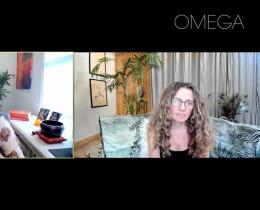Game changer (noun): a person or idea that significantly affects the outcome of something
Do Your Own Work & Own Your Part
There are many ways to become an effective game changer, but in the context of spiritual activism, committing to your inner work and transforming your own limited beliefs is primary.
"There is a revolution that needs to happen for real change to transpire, but it’s a revolution that begins from within."
Seane Corn
It is so easy to get self-righteous and want to “change the world,” when the most responsible effort would be to actually change ourselves and the way we are contributing (consciously and unconsciously) to the oppression that impacts so many in hurtful and disempowering ways. We can’t change what we are unwilling to see, so a true game changer looks within, takes responsibility, shifts awareness, and takes action motivated by love.
One of the first things a game changer might acknowledge is that there is no separation between us, meaning there is no “us” or “them.” The practice of yoga tells us we are all connected and we are all one, but that doesn’t mean we are the same. There is an imbalance of power that exists that gives much to some and very little to most. The oppression that exists is the root of much conflict in our world, but this oppression doesn’t happen in a vacuum. We are all responsible; we are all accountable.
Everything that happens in the world is a manifestation of our collective thoughts. Change individual perception, and collective understanding follows. That is why self-responsibility and personal accountability are the true hallmarks of a game changer.
A game changer is someone who is willing to look at their own racism, sexism, genderism, homophobia, transphobia, ageism, ableism, classism, etc. A game changer recognizes that none of us are enlightened enough not to be influenced by the fear and societal bias and prejudice that is status quo in our culture.
A game chager knows that critical to creating any kind of true and sustainable social change, we must acknowledge the way we continue to “other-ize” and how we may perhaps even benefit from it. Oppression is embedded in our society, inherited from our family and passed down through our institutions. A game changer sees it, owns it, changes it, and works with the knowledge to serve others.
There is a revolution that needs to happen for real change to transpire, but it’s a revolution that begins from within.
Know Yourself, Listen Well & Keep At It
To be an effective game changer first takes self-awareness; otherwise we get in our own way. This is difficult work, and knowing ourselves—not just our personal psychological proclivities, but knowing our positionality—is vital. Positionality is the recognition that where you stand in relation to others in society shapes what you can see and understand about the world.
The other element of effective game changing is being a good listener. In order to know what needs to change, we need to hear from those most impacted. We also often need to collaborate. Cultivating good listening and communication skills help us collaborate across differences and find common ground rather than conflict.
Finally, we need determination. This work requires patience. Big change happens slowly, and in order to maintain our stamina we have to have a practice that connects us to our determination and purpose. We also have to find a way to have some fun along the way, because in this work the journey is often the destination.
Find Your Willingness, Courage & Embodied Awareness
Being a game changer involves a deep willingness to open ourselves to the state of the world and to feel the intensity, grief, and heartbreak of a world out of balance. Our willingness to both see with clear sight and to feel the depth of the pain and separation is key to becoming an embodied truth teller and change maker. The process of self-awareness is primary, yet complex, and requires us to tap into deep reserves of authenticity that perhaps lie under many years of conditioned thinking and being. In other words, it is important for us to discover our own unique truths that perhaps are different than those of our families, schools, religions, and even cultures.
To take on this process requires the courage to discover and heal our own wounds, as well as acknowledge the historical and familial cycles of violence that are perpetuating those wounds in ourselves and in others. It also requires us to look deeply at our own often unconscious complicity in the personal, cultural, and global structures that create great suffering and injustice for others. This is what I mean by seeing with clear sight—while we are feeling and experiencing the intensity of the world today, we need to concurrently be examining the structural causes of some of its biggest challenges through a clear lens that is informed, discriminating, and far-reaching.
This potent combination of embodied awareness and penetrating clarity can potentially lead us to a willingness to know, speak, and live our authentic truth on a daily basis. Once we have given ourselves permission to do that, we can seamlessly tap into our innate creativity, which is the key to making change. If we are to find solutions to some of the complex and deeply entrenched problems of our time, we must be able to think differently and innovatively, and we must trust the inner knowing that rises from within. Great change makers must be willing to speak truth to power, trust their own wisdom, and carve new pathways. This can be seen as a daunting task, but can also be seen as a joyful act of courage. Change makers who are willing to live their truth as a creative act are needed in these times to inspire evolution and deep healing.



